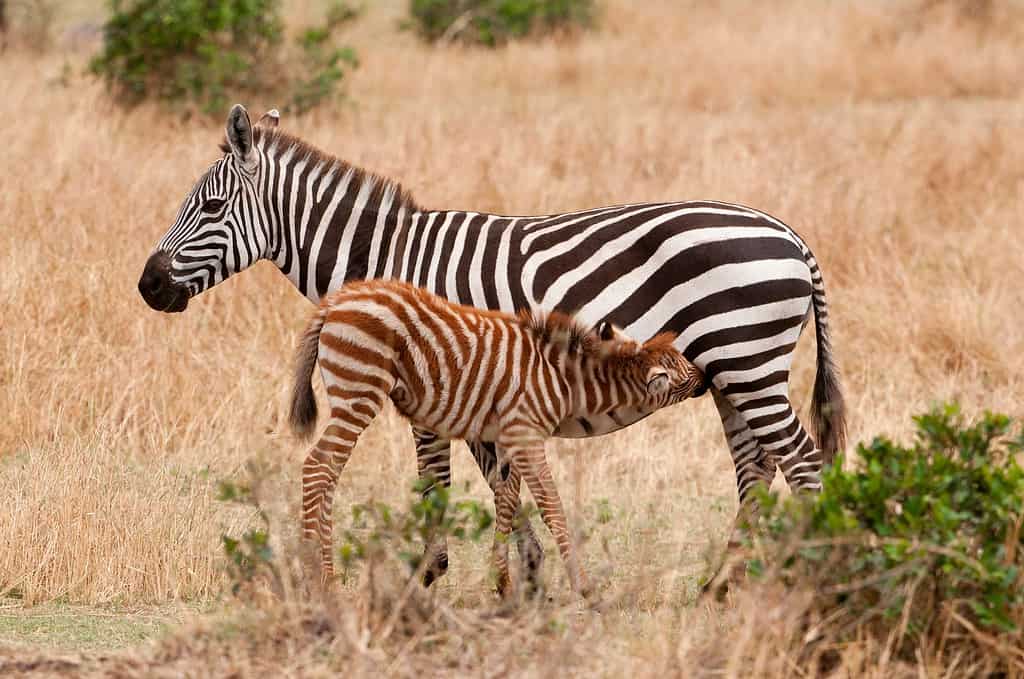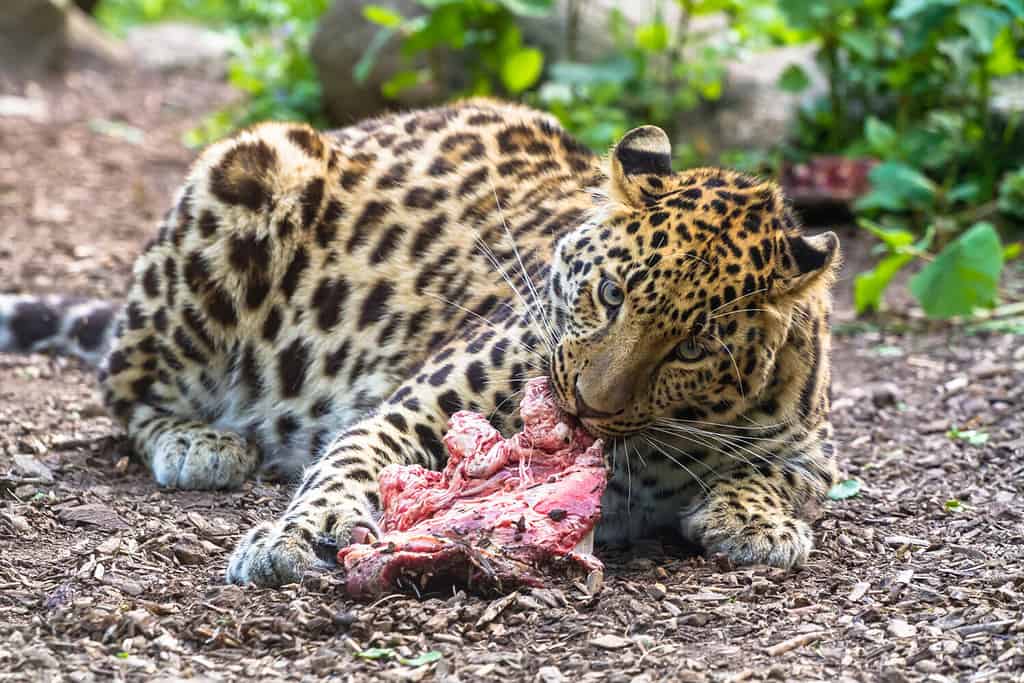At the start of the video below, it appears that a mother leopard and her cubs are wandering amongst a group of zebras. It is not unusual for a mother leopard to take her older cubs with her so that they can learn how to hunt. However, suddenly a mother zebra seems to take issue with their presence and gives chase. The video is slowed down so that you can appreciate just how athletic both of these creatures are. Click below to watch the whole clip and see if you can work out what’s happened here!
Watch the Incredible Footage Below!
Do Zebras Normally Chase Leopards?

Female zebras are highly protective of their foals
©catahoulagirl/Shutterstock.com
Surprisingly, there are numerous clips online of zebras chasing leopards. Sometimes, the leopards take refuge in trees. This is called ‘antipredator behavior’ and is basically a type of defense. It is normal for groups of female zebras to form tight associations and hold their ground against predators. Often, a mother and young calf will be shielded by others in the group. Both stallions and mothers will mount active defenses, which can include attacking with their teeth and hooves. These strategies are highly effective against many predators.
Though they will fight, zebras are known to alert one another of a threat and run away from their predator as a tight herd, which often either confuses or simply intimidates their attacker.
What Do Leopards Normally Eat?

Leopards are carnivores and eat a variety of animals.
©Dmitri Gomon/Shutterstock.com
Leopards are carnivores and either kill other animals or feed on the carcasses of animals caught by other predators. Their diet varies by where they live but they eat a very wide range of other species. This means that leopards that live in forests eat medium to large prey including primates. In contrast, those that live in the Western Cape Mountains of South Africa target smaller prey such as rock hyrax.
A zebra is a considerable challenge for a leopard. Because they hunt alone, they do not have the combined power that a pride of lions would be able to produce. Therefore, leopards tend to only target zebra foals or sick or injured zebras. It also means that zebras are quite brave about driving them off.
The photo featured at the top of this post is © abxyz/Shutterstock.com
Thank you for reading! Have some feedback for us? Contact the AZ Animals editorial team.






